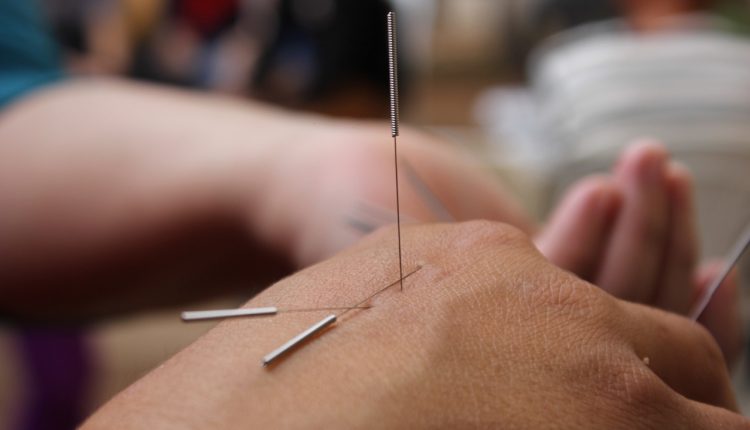THE BENEFITS OF ACUPUNCTURE FOR PTSD SYMPTOM RELIEF

Most people who suffer from PTSD have experienced a traumatic interruption of their sense of reality. This violation of one’s normal sense of safety and well-being brings along intense feelings of fear, horror and helplessness, overwhelming the coping strategies for everyday stress.
Unable to discharge the awful intensity of the experience, the psyche responds by trying to repress and isolate the memories. A kind of emotional quarantine is established, producing something like an emotional cyst. The walling off of the trauma may be necessary just to get on with day-to-day tasks and survival. Unfortunately this process requires enormous amounts of psychic energy to maintain, and is not usually very successful.
Often PTSD sufferers find themselves triggered by small, seemingly inconsequential stimuli-anything from the sound of an engine backfiring, to a particular scent or the expression on a stranger’s face. These seemingly innocent stimuli are tied to the original memory and cause a breach in the protective wall. This may set off flashbacks, or episodes of anger, depression, insomnia or self-destructive behaviors.
In an effort to prevent this triggering, PTSD sufferers may become reclusive, obsessively avoiding certain situations or people. This list may grow over time, severely restricting normal activities. They may turn to alcohol or other numbing agents, in an effort to shut down their “fight or flight” reactions. This often leads to a downward spiral of dysfunctional and deteriorating relationships.
For some, the effort to maintain the repression will begin to cause memory problems, lethargy, trouble concentrating or emotional numbing. So much effort is going into isolating the trauma that little energy is left for normal life.
Unfortunately, most forms of traditional therapy offer little or no relief from these symptoms. Because they rely heavily on the client remembering, verbalizing and discussing their memories and feelings, most conventional therapy runs directly counter to the client’s desperate need to stay safe through repression. Sometimes well meaning therapists may do more harm than good by strongly re-triggering memories and strengthening the related neural pathways.
One treatment method that has demonstrated very promising results for PTSD relief is EFT (emotional freedom techniques). EFT or “tapping” operates on the premise that all negative emotions are a disruption in the body’s energy system-the same network of energy meridians that acupuncturists use.
Instead of using needles, the EFT practitioner has the client tap on specific acupuncture points with their fingers, while undertaking a systematic process of focusing on emotions, physical sensations and recollections. When applied properly, the technique most often provides immediate relief. Repeated rounds of tapping often bring about a complete discharge of the negative emotional intensity associated with a particular memory.
The memory itself is not removed, and in fact may become more clear and detailed, however the accompanying feelings (fear, guilt, anger, or horror for example) simply seem to disappear. Attempts to re-stimulate these feelings by recalling the memory in ever-greater detail are generally unsuccessful. Follow-up, even months later typically shows no return of these negative feelings.
One great advantage of the EFT process is that there are several well-established procedures that enable trained practitioners to carefully discharge memories without re-traumatizing the client. All certified practitioners are trained in the “tell a story” and “tearless trauma” techniques.
EFT is also a remarkably effective method. To fully discharge one specific memory of a traumatic incident may take, on average, anywhere from 20 minutes to an hour. These seemingly miraculous results are possible because EFT addressed the root of the problem: the disturbance in the client’s energy system, rather than in the memory itself.
As specific memories are discharged one after another, a “generalization effect” begins to take place, and similar memories begin to lose their intensity automatically. In other words, if a soldier has 100 traumatic war memories, it may only be necessary to tap on ten to twenty of them for complete relief.
EFT has been used effectively for combat vets, police, fire and EMTs, victims of sexual assault and other forms of violence, survivors of natural disasters, accidents, terrorist attacks and childhood abuse. As traumatic memories are “collapsed” the energy that was going toward repressing them is restored, and many related problems, including physical complaints, tend to spontaneously resolve.
EFT is a relatively new technique and is still considered “alternative” and so may not be covered by most health insurance plans. However, given the lack of effective conventional treatments for PTSD, EFT’s track record of rapid results may make it the best and most cost effective approach for many PTSD sufferers. And because many EFT practitioners can work over the phone, sessions are accessible to almost anyone.
New Treatments For PTSD – Natural Remedies May Help
Post Traumatic Stress Disorder (PTSD) is a serious and often debilitating condition that affects many people. It is especially prevalent in the military. The current theory is that PTSD results from the effects of adrenaline that are released when one experiences a traumatic event. Adrenaline is a set of hormones released by the adrenal gland in the body. Adrenaline is one of the so called ‘Fight or Flight’ stress hormones the body releases to enable us to effectively survive the traumatic experience.
Adrenaline also affects our brain and how we remember the event. This was a good thing back in our natural environment. When we had a traumatic event, like being attacked by a predator such as a lion, the release of adrenaline imprinted that event very intensely in our minds. This meant we did not forget it. In fact, we now would have a vivid memory of the lion attack and in the future would strongly associate lions with danger. This enabled our ancestors to not only survive, but to vividly remember what bad things to avoid in the natural world.
In the modern world, the release of adrenaline means we will tend to remember events we would prefer to forget. This is what leads to PTSD. The drug propranolol can help as it inhibits the release of adrenaline following the event. But of course, timing is critical.
Fortunately there are other options. A more holistic approach can offer relief from PTSD. This would include several modalities to address the condition on different levels. Some form of therapy, such as Neuro-Linguistic Programming (NLP) can help us to rewire the brain. The brain does have plasticity in how it makes neural connections to areas such as memory, and NLP can help shift those connections.
A healthy diet and lifestyle including regular exercise can help shift brain chemistry favorably, allowing us to cope with life better. Dietary changes include shifting to whole foods and away from packaged and fast/convenient foods. Eliminating fried foods and instead consuming healthy fats like avocado, soft egg yolks, coconut and olive oil, flax and sesame seeds, raw almonds and walnuts can in the long term make subtle but significant improvements in brain function.
Try to eliminate soda and sweet drinks of any kind, as the sugar in these is very detrimental to brain health. Sugar in general is best kept to a minimum. Flour is also to be avoided – bread, pizza, pasta, cookies and cake are off the menu if you want to see improvements in how you look and feel.
For immediate relief, natural remedies may provide some help. Gabatrol for example, is a safe, all natural and non-addictive formula that can help in a wide variety of emotional conditions. It’s mainly comprised of amino-acids, which are the same nutrients found in protein foods like chicken, fish and eggs. Users report the calming effects of Gabatrol are very noticeable within 15-30 minutes, and it can last for several hours.
It’s all connected, and often an emotional trauma like PTSD can lead us to behaviors that destroy our health and well being. All it takes is a small step in the right direction and day by day the cumulative effects of your efforts can make big changes in your life. If you need immediate help to get you going, all natural Gabatrol may give you the edge to start changing your life in more positive ways.
Treatment of PTSD
There are five identifiable posttraumatic syndromes that require different treatment approaches (Marmar, et al. 1993; 1995). They are;
1. the normal stress response, is characterized by single discrete traumatic event causing intense intrusive recollections, numbing, denial, feelings of unreality, and arousal. Individual or group debriefing is used for complete recovery.
2. acute catastrophic stress reaction, involves panic reactions, cognitive disorganization, disorientation, dissociation, severe insomania, tics & other movement disorders, paranoid reactions, and incapacity to manage even basic self care, work & interpersonal functions. Treatment includes immediate support, removal from the scene of trauma, medication for immediate relief from anxiety & insomnia, and psychotherapy.
3. uncomplicated PTSD, where group, psychodynamic, cognitive-behavioral, pharmacological or combination of these are used for treatment (Herman, 1992; Scurfield, 1993).
4. PTSD co-morbid with other disorders is more common than uncomplicated PTSD and is usually associated with disorders such as depression, alcohol/substance abuse, panic disorder, & anxiety disorders and therefore deserves concurrent treatment.
5. Post-traumatic personality is due to exposure to prolonged traumatic situations like childhood sexual abuse. They may have borderline personality disorder, somatoform disorder, or dissociative identity disorder. Their behavioral problems include impulsivity, aggression, sexual acting out, eating disorders, alcohol/drug abuse and self-destructive actions. The emotional problems include affect lability, rage, depression, and panic. Cognitive problems include fragmented thoughts, dissociation, and amnesia. Inpatient treatment involving behavioral and affect management with emphasis on family function, vocational rehabilitation, social skills training, and alcohol/drug rehabilitation is done for those diagnosed with posttraumatic personality disorder.


Comments are closed.